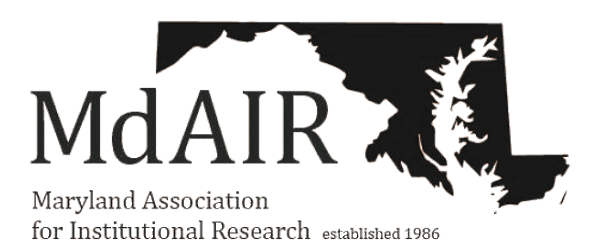MdAIR 35th Annual Conference
Friday, October 29, 2021
Virtual Conference via Zoom
9:30am - 2:40pm
From Surviving to Thriving:
Building Resilience
(Don't forget to Renew your MdAIR Membership for 2021-22!)
CONFERENCE AGENDA
Welcome and Introductions 10:00 - 10:30am
Four experts from various academic institutions will discuss the challenges faced by IR offices due to the pandemic and creative and effective solutions to address them, the changing role of the IR professionals to address new institutional needs as well as tips on how IR professionals can advocate for themselves in times of increased budget and hiring constraints. Panelists:
RECORDING NOTICE: Please be advised all sessions on Friday, October 29 will be recorded using Zoom's conference recording feature. The point at which recording begins will be announced at the beginning of the session, and you can observe the red light at the top of your screen confirming recording is in progress. Recordings will be made available to MdAIR membership via the Members pages. |
